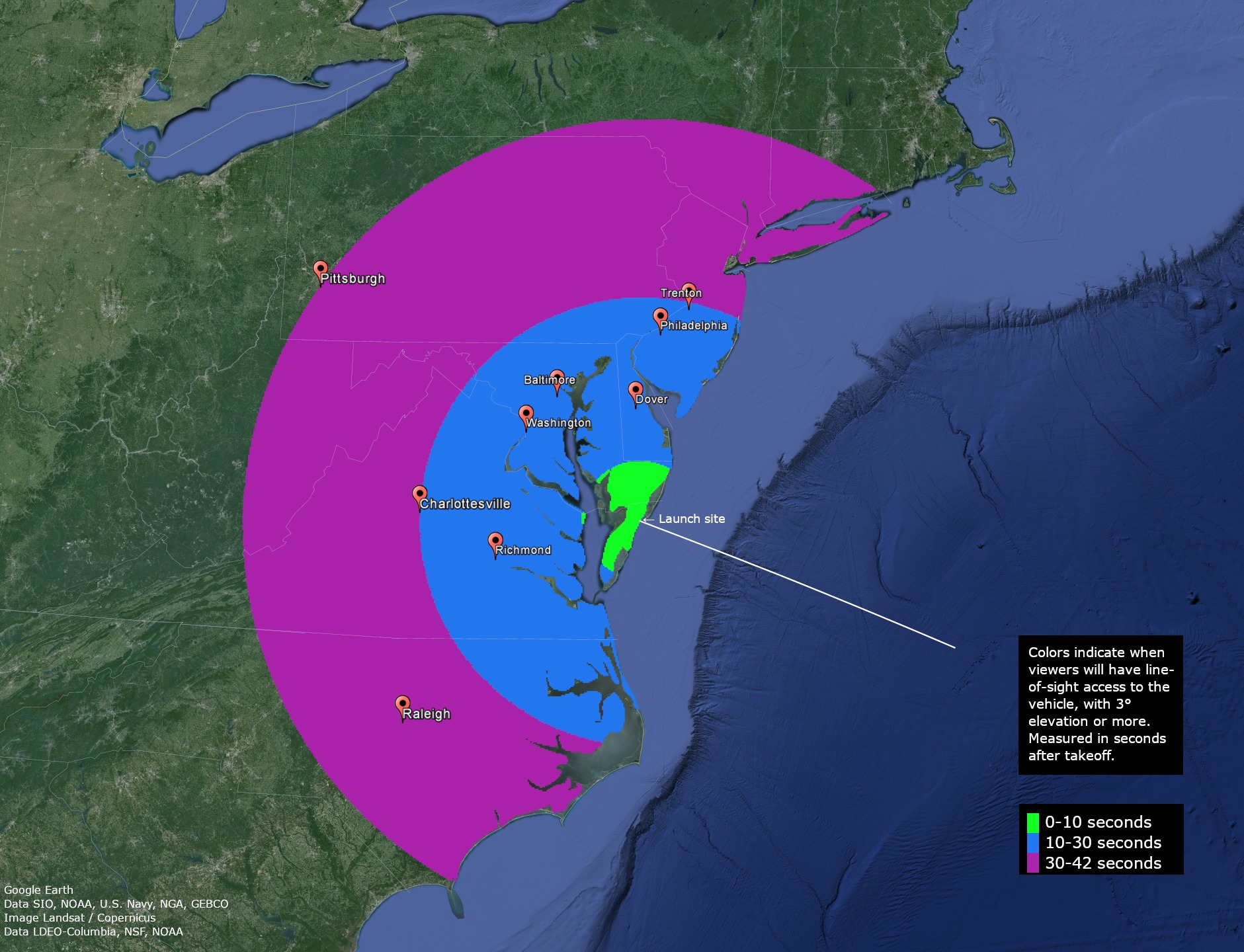Three Black Brant IX sounding rockets for the Atmospheric Perturbations around Eclipse Path (APEP) mission are scheduled to launch from NASA's Wallops Flight Facility launch range in Virginia. The launch window opens April 8, 2024, at 2:40 p.m. EDT.
Launching approximately 45 minutes before, during, and after the peak local eclipse, the APEP sounding rockets will study how Earth's upper atmosphere is affected when sunlight momentarily dims over a portion of the planet. Targeted launch times for the three rockets are 2:40 p.m., 3:20 p.m., and 4:05 p.m. but may be subject to change.
The launches will be livestreamed on Wallops' YouTube beginning at 2:30 p.m.
Weather permitting, the launches may be visible in the mid-Atlantic region. Remember to always wear solar safety or "eclipse" glasses when looking at the Sun to protect your eyes. For the Wallops area, the eclipse will begin around 2:06 p.m. The Moon will block 81.4% of the Sun's light at peak local eclipse at 3:23 p.m. and conclude at 4:34 p.m.

Members of the public are invited to the NASA Wallops Visitor Center on Monday, April 8, to view the sounding rocket launches and the partial eclipse. Gates to the visitor center will open from 1-5 p.m. and will close once parking lot capacity is reached. For those traveling to our visitor center, all vehicles MUST fit within a standard parking spot for this event; no large, oversized vehicles or buses will be allowed for entry.
The visitor center will offer solar-related activities, have NASA sounding rocket experts onsite to answer questions, and host Globe Program expert Brian Campbell, who will be showing people how to collect data during the eclipse using the Observer app. Eclipse glasses and pinhole viewers will be available during this event while supplies last. Food trucks will be onsite serving food and drinks, including empanadas, crab cakes, hamburgers, hot dogs, barbecue, water ice, and more.
While this combined viewing event is exciting for some, it may not be ideal for all. A designated sensory-friendly quiet area will be available at the Wallops Visitor Center for guests. This supervised quiet area will include dimmed lighting, seating, a reflection area, and touch items for guests to explore.
Prepare for safe solar viewing during this year's eclipse by checking out NASA's Eclipse Safety page.






